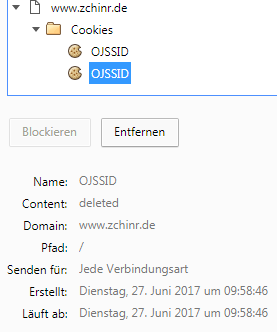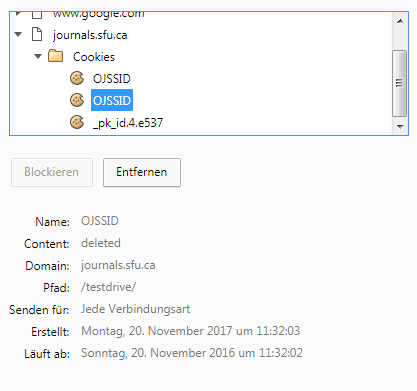Hey there,
we are encountering random login problems for all types of user accounts (readers, journal managers, editors …).
One simply can never login using the Apple iPad default browser (the small safari version).
From time to time, unfortunately randomly, you cant login using the configurations Apple/OSX/Safari, Windows 7 / IE, Windows 7/Chrome, Windows 10 / Chrome.
Interestingly, if one submits a wrong user/password combination, the red error message pops up as it should. However, if one submits a correct login, the screen just returns to the login mode without further reactions. No error message, just behaving if nobody had entered anything there.
Has this been an issue before?
Would be grateful for any hint, because the last problem occured when demonstrating it in front of a conference in germany … ironically, as a last resort we tried the macbook of a colleague instead of the WinPc, and that worked (so we were lucky, finally … however, if one wants to subscribe and to read the issues and encounters that problem, it is a grave mischief…)
thank you -
Jesaiah



